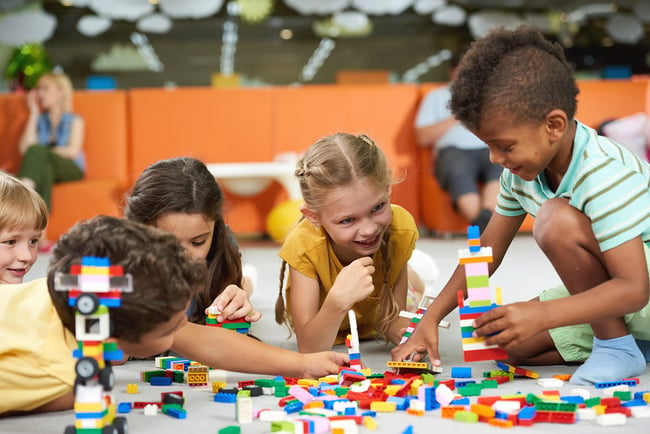What does social development look like for a preschooler once the toddler stage has come and gone? Here’s 6 signs your toddler is turning into a preschooler!
ENGAGING IN PARALLEL PLAY
At age two, you most likely saw some “parallel play.” That just means children are usually playing next to each other, however they are not doing much interaction together while they are individually playing. As children progress into age three and enter that preschooler phase, you will see them interacting with other children more than at age two. They start to seek out other children and desire to play with someone else.
COMMUNICATING WITH PEERS
Preschoolers discover how others interpret the world. Preschoolers also notice other people’s feelings and emotions and they often start to empathize and learn cooperation skills like turn taking and sharing. Instead of crying, whining or making a noise when they want something, preschoolers start to communicate more with their peers with words and phrases. What a relief, right?
USING THEIR WORDS
It’s also important to reinforce to a preschooler how they can use their words to communicate with a peer to eliminate the whining or crying behaviors. You can get down on the preschooler’s level and help support them using their words to communicate with their friend about what they want and need. This type of modeling sets the preschooler up for success as they are newly managing these social behaviors.
PROBLEM SOLVING
Usually around age three, preschoolers will begin to learn problem solving skills in social situations and you may notice that play dates seem to go more smoothly. Also in a classroom setting, the teacher can be that support to help preschoolers solve their own problems in social situations. There’s a shift we observe as a toddler turns three and transitions into that preschool stage and it’s beautiful to watch as their social development progresses.
MAKING FRIENDS
As preschooler’s social development progresses, we see around age four and five that friendships become much more valuable. Preschooler’s may mention having a “best friend” at school or at church after being in a social setting. Friendships become even more important and relationships besides with Mom, Dad, siblings or family starts to become something that’s desired and sought after.
MODELING BEHAVIOR
As those friendships become stronger, it may even effect your preschooler’s behavior. You may hear them say things they’ve never said before or act in a way you’ve never seen before. Preschool age children begin to value other opinions and may try to please their friends or peer relationships. This is all part of a preschooler’s social development.
As your preschooler turns three, and then four, and then five, this is the social development in your preschooler you can expect to see!

